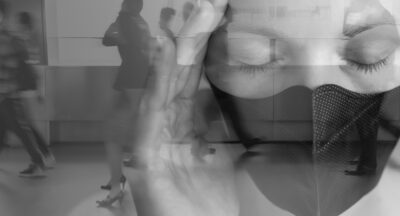
Adderall and Vyvanse — Are There Negatives to Taking Stimulant Medications?
What are the negatives of taking stimulant medications like Adderall and Vyvanse?
Stimulant medications like Adderall and Vyvanse are commonly prescribed for attention deficit hyperactivity disorder (ADHD) and narcolepsy. While they can be effective treatments for these conditions, there are also potential negative side effects associated with their use. In this blog post, we will explore the negatives of stimulant medications, including their potential for abuse and addiction, as well as alternative treatments that may be helpful for individuals with ADHD and narcolepsy.
Negatives of stimulant medications
- Potential for abuse and addiction: Stimulant medications like Adderall and Vyvanse are classified as Schedule II drugs, meaning they have a high potential for abuse and dependence. Individuals who take these medications may be at increased risk of developing a substance use disorder or addiction.
- Negative side effects: Stimulant medications can cause a range of negative side effects, including:
- Appetite suppression
- Insomnia
- Anxiety
- Irritability
- Headaches
- High blood pressure
- Increased heart rate
- Restlessness
- Tics
- Impact on growth: Stimulant medications can impact growth in children and adolescents. Studies have shown that children who take these medications may experience slower growth rates compared to children who do not take stimulant medications.
- Increased risk of mental health conditions: Some research suggests that individuals who take stimulant medications may be at increased risk of developing mental health conditions, such as anxiety and depression.
Alternative treatments for ADHD and narcolepsy
- Diet: A healthy diet can play an important role in managing symptoms of ADHD and narcolepsy. Eating a diet that is rich in whole foods, including fruits, vegetables, and lean proteins, can help regulate mood and energy levels. Additionally, eliminating processed foods and sugar from the diet may also help reduce symptoms of hyperactivity and inattention.
- Supplementation: Certain vitamins and minerals may be helpful for individuals with ADHD and narcolepsy. For example, omega-3 fatty acids, which are found in fatty fish, may help improve symptoms of hyperactivity and inattention. Additionally, magnesium and zinc may also be helpful for improving sleep quality and reducing symptoms of anxiety and depression.
- Meditation: Mindfulness meditation has been shown to be effective for reducing symptoms of anxiety and depression in individuals with ADHD. Additionally, regular meditation practice may also help improve attention and focus.
- Neurofeedback: Neurofeedback is a type of therapy that uses real-time feedback to train the brain to function more efficiently. During a neurofeedback session, sensors are placed on the scalp to measure brain activity. This activity is then displayed on a screen, allowing the individual to see their brainwaves in real-time. With guidance from a therapist, individuals can learn to regulate their brain activity and improve symptoms associated with ADHD and narcolepsy.
Research on alternative treatments
- Diet: A 2019 review of the literature found that a healthy diet, including the Mediterranean diet, was associated with improved ADHD symptoms in children and adults. Additionally, a study published in 2019 found that a low-sugar, low-processed food diet was effective for reducing symptoms of hyperactivity and inattention in children with ADHD.
- Supplementation: A study published in 2014 found that omega-3 supplementation was effective for improving symptoms of hyperactivity and inattention in children with ADHD. Additionally, a review of the literature published in 2017 found that magnesium and zinc supplementation may be helpful for improving sleep quality and reducing symptoms of anxiety and depression in individuals with ADHD.
- Meditation: A study published in 2018 found that mindfulness meditation was effective for reducing symptoms of anxiety and depression in individuals with ADHD.
- Neurofeedback: A meta-analysis published in 2019 found that neurofeedback was effective for improving symptoms
Related Posts
Getting Proper Support for Children in Special Education — Why is it Challenging?
Parents of children with special education needs face a unique set of challenges...
The Impact Of COVID-19 On Our Mental Health
The title of this blog post suggests doom and gloom. Yes, we will discuss the...
Can Neurofeedback Help with Insomnia?
Millions of people worldwide grapple with the torment of insomnia, a sleep...
Adderall and Vyvanse — Are There Negatives to Taking Stimulant Medications?
Stimulant medications like Adderall and Vyvanse are commonly prescribed for...





